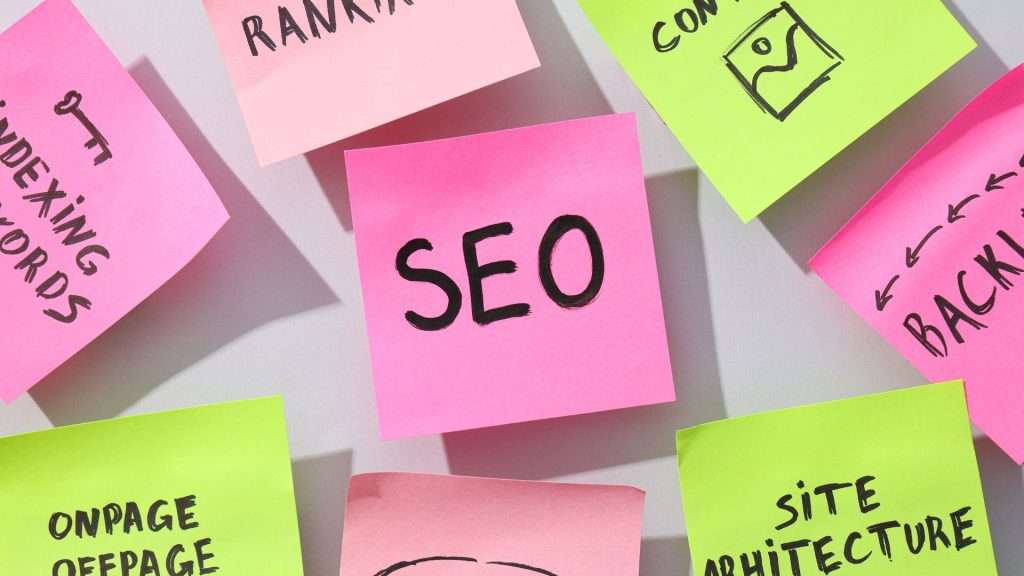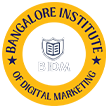
Digital marketing has completely revolutionized the way businesses connect with their audience. In the past decade, marketing has shifted from billboards and brochures to search engines, social media, and smartphones. Whether you run a small local business or a global brand, digital marketing has become an essential strategy to stay competitive, attract customers, and drive measurable growth.
This blog dives deep into the key advantages of digital marketing, its importance for businesses, and how it has transformed the global business landscape.
Table of Contents
1. What Is Digital Marketing?
Digital marketing refers to promoting products or services through digital channels such as search engines, social media, email, mobile apps, and websites. It encompasses a wide range of strategies — from SEO (Search Engine Optimization) and PPC (Pay-Per-Click advertising) to social media campaigns, content marketing, and influencer collaborations.

Unlike traditional marketing, digital marketing leverages technology and data to deliver personalized experiences, track user behavior, and optimize campaigns in real time.
Key Components of Digital Marketing
- Search Engine Optimization (SEO)
- Pay-Per-Click Advertising (PPC)
- Social Media Marketing (SMM)
- Content Marketing
- Email Marketing
- Affiliate Marketing
- Influencer Marketing
- Mobile Marketing
Each of these components offers unique benefits that, when combined, form a powerful growth strategy for any business.
2. The Growing Importance of Digital Marketing in 2025
We live in an era where nearly every consumer journey begins online. According to global statistics, more than 65% of consumers research products online before making a purchase. Whether they use Google search, YouTube videos, or Instagram recommendations — the internet drives most purchase decisions.
This makes digital marketing not just a choice but a necessity.
Businesses that effectively use digital platforms have seen massive growth in visibility, engagement, and ROI compared to those relying only on traditional media.
Reasons for Rising Popularity
- Increased internet and smartphone penetration
- Affordable access to advertising through social platforms
- Data-driven marketing strategies for better targeting
- Rise of e-commerce and digital payments
- Personalization and automation tools
3. Top 20 Advantages of Digital Marketing
Let’s explore the most powerful advantages of digital marketing that make it a game-changer for businesses in 2025.
1. Global Reach
Traditional marketing is often limited by geography, while digital marketing provides global access. A business in Delhi can reach customers in London, New York, or Dubai with a few clicks.
Digital platforms allow you to:
- Launch international campaigns
- Target audiences in multiple regions
- Test products in new markets easily
- Create brand awareness across borders
This global exposure levels the playing field between small startups and large corporations.
2. Cost-Effective Marketing
One of the biggest advantages of digital marketing is its cost efficiency. Running TV or print ads can be expensive, whereas social media ads, Google Ads, and content marketing cost far less and deliver measurable returns.
With proper strategy, even small businesses can compete effectively without huge marketing budgets.
For example:
- Google Ads and Facebook Ads allow daily or monthly budget control.
- Email marketing tools are affordable and deliver high ROI.
- Organic SEO helps generate free traffic long-term.
3. Measurable Results and Analytics
Traditional marketing provides limited tracking, but digital marketing gives real-time data about performance.
Using analytics tools like Google Analytics, businesses can track:
- Clicks and impressions
- Conversion rates
- Traffic sources
- Customer demographics
- ROI of each campaign
This level of transparency helps in making informed decisions and continuously optimizing marketing strategies.
4. Targeted Audience Reach
Unlike traditional advertising, where messages are broadcasted to everyone, digital marketing allows laser-focused targeting based on user behavior, interests, location, and demographics.
You can segment audiences using:
- Google Ads targeting options
- Social media insights
- Retargeting campaigns
- Email list segmentation
This ensures that your marketing budget is spent reaching people who are most likely to convert.
5. Enhanced Customer Engagement
Digital marketing enables two-way communication with customers. Through platforms like Instagram, YouTube, LinkedIn, and Facebook, businesses can directly engage with audiences via:
- Comments and feedback
- Polls and live sessions
- Contests and giveaways
- Personalized responses
This builds stronger relationships, trust, and brand loyalty over time.
6. Improved Conversion Rates
Every click, lead, and conversion can be tracked digitally. Optimized landing pages, persuasive calls-to-action (CTAs), and A/B testing help improve conversion rates significantly.
Techniques like remarketing and personalized emails can further boost conversions by targeting users who previously interacted with your brand.
7. Real-Time Customer Feedback
With digital platforms, customers can instantly share reviews, ratings, or feedback.
This helps brands:
- Identify strengths and weaknesses
- Resolve customer complaints quickly
- Build credibility through positive testimonials
Businesses that respond promptly to feedback are more likely to retain customers and build a strong online reputation.
8. Personalization and Automation
Through AI and data analytics, marketers can send personalized offers and messages to users based on their behavior and preferences. Automation tools also simplify repetitive tasks like:
- Sending emails
- Posting on social media
- Nurturing leads
Personalized campaigns improve engagement and boost conversion rates significantly.
9. Mobile Marketing Advantage
With billions of smartphone users globally, mobile marketing has become a critical advantage. Mobile-friendly websites, push notifications, and SMS campaigns help businesses stay connected with their audience anytime, anywhere.
Mobile optimization ensures users have a smooth browsing experience, leading to higher retention and sales.
10. Brand Awareness and Visibility
Digital marketing makes it easier to build brand visibility across multiple platforms. Regular social media updates, blog posts, and ad campaigns create consistent exposure, ensuring that your brand stays in the minds of customers.
The more touchpoints your brand has, the higher the trust and recognition.
11. Equal Opportunity for All Businesses
Unlike traditional marketing dominated by large corporations, digital marketing provides a level playing field. Small businesses can compete effectively through:
- Local SEO
- Niche content marketing
- Influencer collaborations
This democratization allows startups to build strong brands without massive investment.
12. Easy to Adapt and Scale
Digital marketing campaigns are highly flexible. You can easily pause, modify, or scale campaigns based on real-time performance.
For instance:
- If an ad performs well, you can increase the budget instantly.
- If results are poor, you can pause the campaign without wasting money.
This adaptability ensures maximum efficiency and minimal risk.
13. Builds Credibility and Trust
Consumers tend to trust brands that maintain an active digital presence.
Regular blog posts, social proof, reviews, and testimonials contribute to a brand’s credibility. Businesses with professional websites and authentic content are perceived as more trustworthy.
14. Content Drives Long-Term Growth
Unlike paid ads that stop generating results once the budget ends, content marketing (blogs, videos, and infographics) keeps attracting visitors over time.
High-quality SEO content can:
- Rank on Google for years
- Generate organic traffic continuously
- Establish your brand as an industry authority
15. Boosts ROI (Return on Investment)
Digital marketing offers one of the highest ROI among all marketing channels. With targeted campaigns and measurable performance, you can allocate budgets efficiently and maximize returns.
For instance, email marketing is known to generate $40 for every $1 spent — making it one of the most profitable digital strategies.
16. Supports Data-Driven Decision Making
Every digital campaign produces data that helps refine future strategies. Marketers can track which platforms, messages, or audiences perform best — leading to more intelligent, data-backed decisions.
17. Integration with AI and Automation Tools
AI tools now enhance campaign accuracy and personalization. From chatbots to predictive analytics, artificial intelligence allows businesses to interact smarter, respond faster, and market more effectively.
18. Nurtures Leads Through Multiple Channels
Digital marketing enables multi-channel marketing, where businesses reach audiences through:
- Search engines
- Social media
- Email campaigns
- Retargeting ads
This omnipresence ensures continuous brand recall and a seamless customer journey.
19. Increases Local Visibility
For small businesses, local SEO helps attract nearby customers searching for services “near me.” Optimizing Google Business Profiles, local listings, and maps ensures your business appears in local search results and boosts walk-in traffic.
20. Sustainability and Eco-Friendliness
Digital marketing is paperless and energy-efficient compared to traditional advertising that relies on printing, billboards, and distribution. It’s a sustainable marketing solution that aligns with eco-conscious business practices.
4. How Digital Marketing Empowers Businesses
Businesses of all sizes benefit from digital marketing, but the impact is especially strong for small and medium enterprises (SMEs). With the right strategies, even new brands can gain visibility and customers quickly.
Key Empowering Factors
- Builds a global audience
- Improves lead generation
- Enables real-time customer communication
- Strengthens brand reputation
- Increases sales through automation
Digital marketing empowers businesses to control their brand narrative and growth trajectory like never before.
5. Digital Marketing vs Traditional Marketing
| Aspect | Digital Marketing | Traditional Marketing |
|---|---|---|
| Reach | Global | Local or limited |
| Cost | Low to medium | High |
| Measurement | Real-time analytics | Difficult to track |
| Targeting | Highly specific | Broad and general |
| Flexibility | Easily adaptable | Hard to modify |
| Customer Interaction | Interactive | One-way communication |
| ROI | High and measurable | Often uncertain |
Digital marketing clearly outperforms traditional methods in terms of efficiency, reach, and profitability.
6. Future of Digital Marketing
As we move further into the digital age, emerging technologies like AI, voice search, AR/VR, and machine learning are reshaping the marketing world. The future will focus more on:
- Hyper-personalization
- Predictive marketing
- Voice and visual search
- AI-driven content creation
- Influencer partnerships
Businesses that adapt early will enjoy a competitive edge and sustained growth.
7. How to Get Started with Digital Marketing
If you’re new to digital marketing, here are a few practical steps:
- Identify your target audience and goals
- Build a responsive website
- Invest in SEO and content marketing
- Use social media platforms to build brand presence
- Run small PPC campaigns to test performance
- Analyze results and optimize continuously
Even small efforts can produce big results when implemented strategically.
8. Common Mistakes to Avoid
While digital marketing offers many benefits, mistakes can reduce effectiveness. Avoid:
- Ignoring mobile optimization
- Skipping data analysis
- Overlooking content quality
- Focusing only on sales, not engagement
- Neglecting SEO fundamentals
Consistency, creativity, and analytics are key to long-term success.
9. Real-Life Examples of Digital Marketing Success
- Small local stores using Instagram ads have expanded reach and doubled their sales.
- Startups have used Google Ads and YouTube marketing to generate leads at a fraction of traditional ad costs.
- E-commerce brands leverage remarketing and influencer partnerships to maintain repeat customers.
These examples prove that effective use of digital marketing can transform any business, regardless of size or budget.
10. Final Thoughts: Why Digital Marketing Is the Future
Digital marketing isn’t just a trend — it’s the foundation of modern business growth. It offers cost efficiency, measurable performance, global access, and personalized communication that no traditional medium can match.
From SEO and social media to automation and AI, every innovation makes digital marketing more powerful and indispensable for the modern business landscape.
If you haven’t already embraced digital marketing, now is the perfect time to start. The earlier you invest, the faster you build brand recognition, trust, and profitability.
Conclusion
The advantages of digital marketing extend far beyond visibility and leads — it’s a transformative strategy that connects technology, creativity, and consumer psychology. In 2025 and beyond, businesses that leverage digital marketing effectively will not only survive but thrive in an ever-evolving digital-first world.



